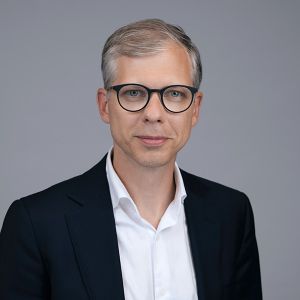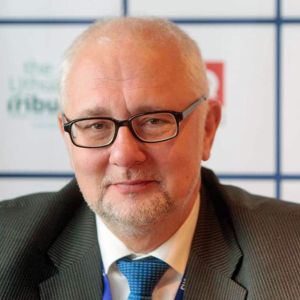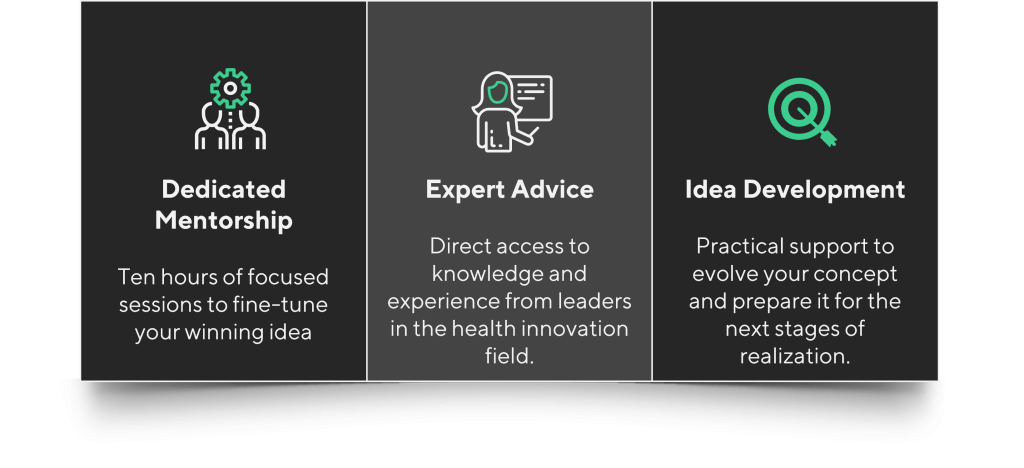Oncological living lab. Open and Gender-Based Innovations
The Oncological Virtual Living Lab is an open innovation ecosystem that fosters co-creation of innovative pan-European colorectal cancer (CRC) solutions. The Living Lab will incorporate lessons learned from the previous successful living labs in healthcare and collaborate with the ongoing CRC projects to organise four virtual hackathons. The Oncological Living Lab is a cutting-edge virtual platform, fostering innovative approaches to colorectal cancer (CRC) screening and early detection across Europe

Development of Innovative, Gender-sensitive Screening Technologies through Collaborative Challenges

Fostering a Pan-European Network for Open Innovation and Data Sharing

Encouraging Multidisciplinary Collaboration and Co-Design in Healthcare Innovation
The Oncothons
A series of four pan-European virtual hackathons, organised by Lithuanian University of Health Sciences as an EIT Health Hub, will bring together virtual teams of patients, creative and thought leaders, researchers and clinicians from different EU countries. The hackathons are designed around specific challenges, carefully crafted to address the pressing needs and emerging opportunities in the field of CRC. Guided by expert mentors and judges, the hackathons focus on developing practical, impactful solutions in CRC screening, with an emphasis on interdisciplinary collaboration. The outcomes of these hackathons aim to contribute significantly to the advancement of CRC screening technologies and methodologies, enhancing early detection and care.
MARCH 2024
Improving Patient Experience
NOVEMBER 2024
Innovating Diet and Lifestyle Solutions through Digital Tools
MARCH 2025
Detect CRC Early: Raising Awareness and Education for Early Detection
NOVEMBER 2025
Digital Health Solutions for CRC Care
ONCOTHON MARCH 2024: Improving Patient Experience
The hackathon focuses on enhancing the patient experience in colorectal cancer care. It aims to innovate in areas of patient comfort, understanding, and support, improving the overall journey for those undergoing CRC treatment and care
Deadline – 19th April 2024
Lack of communication and Information flow between healthcare providers and patients.
Lack of Personalized Patient Education. Empowering patients with a better understanding of their treatment journey.
Lack of Awareness and Early Detection: improving outcomes through timely interventions.
Join the Oncothon: Submit Your Idea from Our Ideas Pool
Are you eager to participate in the Oncothon but still need to formulate your idea? Our Ideas Pool is brimming with innovative concepts waiting to be explored, developed, and transformed into groundbreaking solutions for oncology.
- Training GPs
- Communication through different modalities
- Automatic notifications on electronic devices
- Better communication between GPs and endoscopists
- Information leaflets in different modalities
- Providing good and bad examples to a patient
- Privacy assurance throughout the screening process
- Assurance of the proper colon preparation: dedicated phone calls several days before colonoscopy
- Assurance of the proper colon preparation: visual and graphical information on electronic devices
- Training pharmacists
- Dedicated support in the screening process for elderly patients and those with special needs
- Assurance of the patient transportation
- Enough time for a clinician to properly explain the colonoscopy procedure
- Assurance of quality of colonoscopy
- Adequate anaesthesia during colonoscopy
- Proper explanation of colonoscopy findings
- Patient involvement in the planning process after colonoscopy
- Enough time for a clinician to properly discuss the diagnosis and follow-up with a patient
- Assurance of shortest possible time from CRC diagnosis to starting the treatment
- Patient involvement in the MDT meetings
- Better accessibility of the medical psychologist
- Proper psychological help throughout the screening, diagnosis, surveillance and CRC management processes
- Enough time for a surgeon to explain the process of the upcoming surgery and possible outcomes
- Assurance of privacy before and after surgery – one-patient rooms
- Improved patient care before and after surgery
- Training nurses and staff of surgery units
- Better communication between surgeons and GPs to ensure proper healing process and follow-up
- Assurance of at home support and help after surgery: wound healing process, stoma-related issues
- Stoma-related information through different modalities
- AI-assisted 24/7 online help and support throughout the whole process
- Personalised secured mobile app for treatment process, providing notifications, alerts, recommendations
- Personalised secured mobile app for screening process
- Involvement of a dietician (dietologist) for proper nutrition
- Involvement of lifestyle medicine specialist for guidance in lifestyle recommendations
- Systemic therapy-related, personalised information through different modalities
- Enough time for an oncologist to discuss the systemic therapy-related issues with a patient
- 24/7 support on systemic-therapy related issues (i.e. adverse events and immediate recommendations)
- Accessible and in-time help for dealing with severe adverse events of systemic therapy
- Guidance and recommendations for proper preparation for radiological evaluation
- Frequent face-to-face discussions between a patient and an oncologist about personalised drug-dosing, AEs management, other patient needs
- Accurate and understandable information for a patient about the prognosis
- Education and assurance of adequate pain management
- Personalised recommendations (e.g. through mobile app) for proper pain management (when to take, which drug, what dose, when to see a doctor)
- Personalised pain level evaluation for adequate painkillers prescription and dosing
- Enough time for discussions with specialists about disease progression and palliative care modalities
- Involvement of oncologists, family members, GPs, social workers (etc.) in the planning of palliative care
- Personalised recommendations for the palliative care (e.g. through mobile app) with reminders, notifications (in order to avoid secondary complications)
- Patient-led decisions for the palliative care modalities (better involvement of a patient, relatives in decission process)
- Fully accessible psychological help for patient’s relatives
- Integrated personalised recommendations (e.g. via mobile app) for patient’s relatives (how to support, alarm symptoms, prognosis, stage of treatment, etc.
Oncothon Pitch Deck Submission and Requirements
We’re thrilled to see your innovative ideas come to life at the Oncothon. To ensure a smooth presentation process, please follow these simple instructions for submitting your pitch deck:
Submission Details
Step 1: Register your idea by clicking on this form
Step 2: Sent the Pitch deck Irina Kolomiiets, Oncothon Coordinator
Email: irina.kolomiiets@lsmu.lt
Pitch Deck Requirements:
Your pitch deck should include the following sections:
+ Problem Statement
+ Solution Overview
+ Market Analysis
+ Technology and Implementation
+ Team Overview
+ Design and Formatting:
Ensure your pitch deck is clear, visually appealing, and easy to read. Keep slides concise and maintain a consistent design theme.
The Process of the Oncothon
STEP #1
First Round of Ideas Review
A meticulous review to select the most promising 15 ideas from all submissions.
Successful ideas move forward to the next stage of our journey.
STEP #2
Video Pitch submission
Craft and submit a compelling 3-minute video pitch that encapsulates the essence of your idea.
STEP #3
Expert Evaluation
Our esteemed panel of jurors and subject matter experts will assess the video pitches.
The most impactful idea/pitch from each hackathon earns the spotlight for further development.
THE EVALUATION CRITERIA OF THE IDEAS
Present your ideas and let them be assessed on the following criteria, each with a maximum of 5 points:
+ Clearly define the oncology care challenge your idea addresses.
+ Detail a solution that is both innovative and appropriate.
+ Describe the potential to make a significant and positive change in patient care or outcomes.
+ Consider both the depth and breadth of the impact your idea could have.
+ Showcase the uniqueness of your idea.
+ Emphasize what sets your solution apart from existing ones.
+ Demonstrate that your idea can be realistically implemented with current resources and technology.
+ Provide an assessment of the practical steps needed to bring your idea to life.
+ Illustrate how your idea can grow and adapt to larger scales or different contexts.
+ Consider the potential for expansion and the ability to maintain effectiveness at scale.
+ Engage with a compelling narrative that highlights the significance of your idea.
+ Communicate your concept in a way that is both persuasive and relatable.
THE JURY MEMBERS

Juozas Kupčinskas
Professor at Lithuanian University of Health Sciences, gastroenterologist, Head of the Clinic for Gastroenterology

Dainius Pavalkis
Professor at Lithuanian University of Health Sciences, surgeon, proctologist

Egidijus Morkūnas
Gastroenterologist and Medical Oncologist at The Hospital of Lithuanian University of Health Sciences Kauno Klinikos
Join Our Mentor Network: Shape the Future of Healthcare Innovation
Welcome to our Mentor Network, where expertise meets innovation in healthcare. Are you passionate about making a difference in the healthcare industry? Do you have valuable insights and experiences to share with aspiring innovators? If so, we invite you to become a mentor and be part of our vibrant community.
If you’re ready to make a difference and join our Mentor Network, fill out the Mentorship Interest Form below. We look forward to welcoming you to our community of passionate mentors who drive positive change and innovation in healthcare.
THE PRIZE FOR THE WINNING TEAM
The prize for the winning teams of the Oncothon: 10 hours of mentoring to develop your idea further. This invaluable prize will connect you with experts and mentors from the EIT Health network who are dedicated to nurturing emerging innovations in the healthcare sector.




